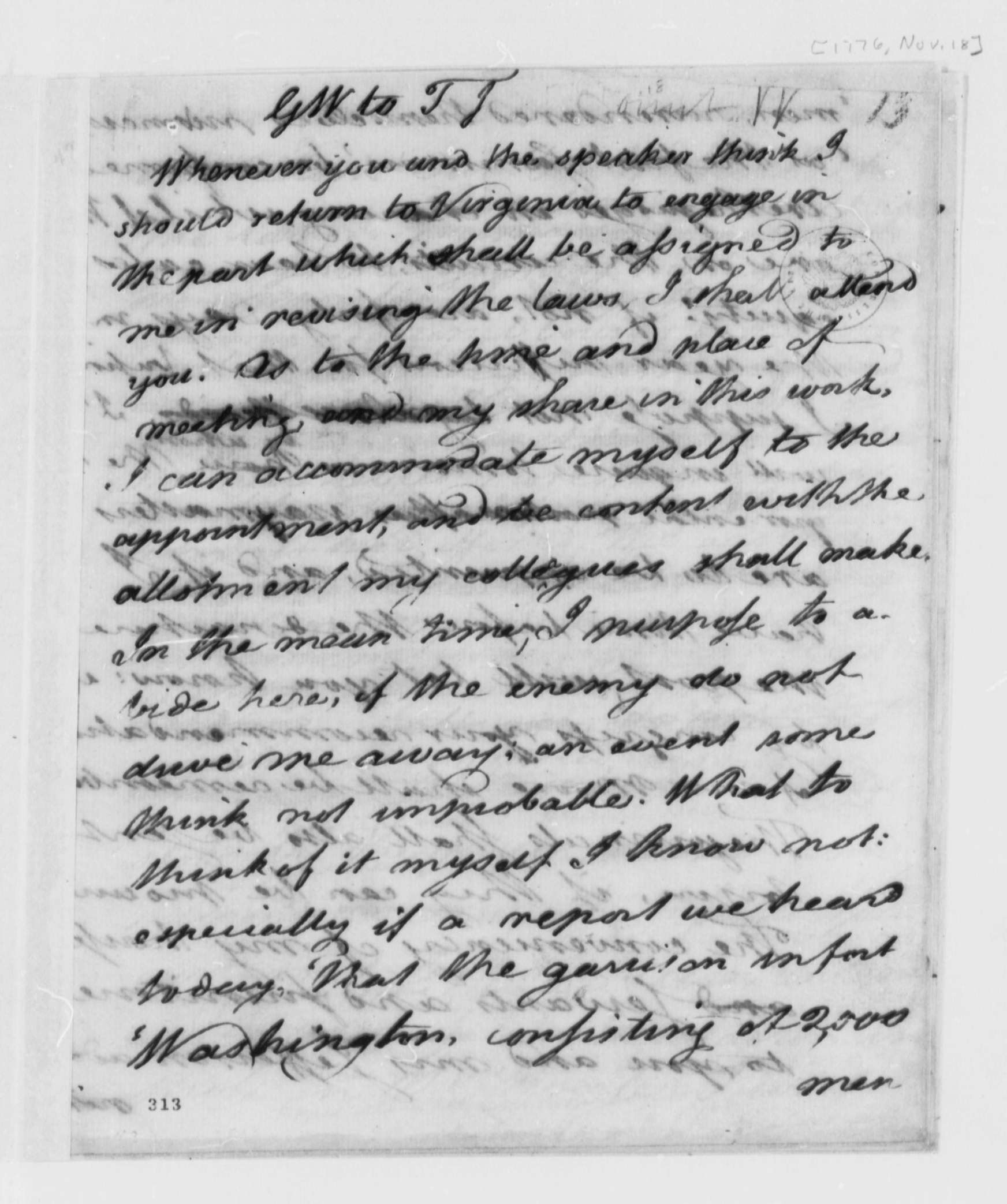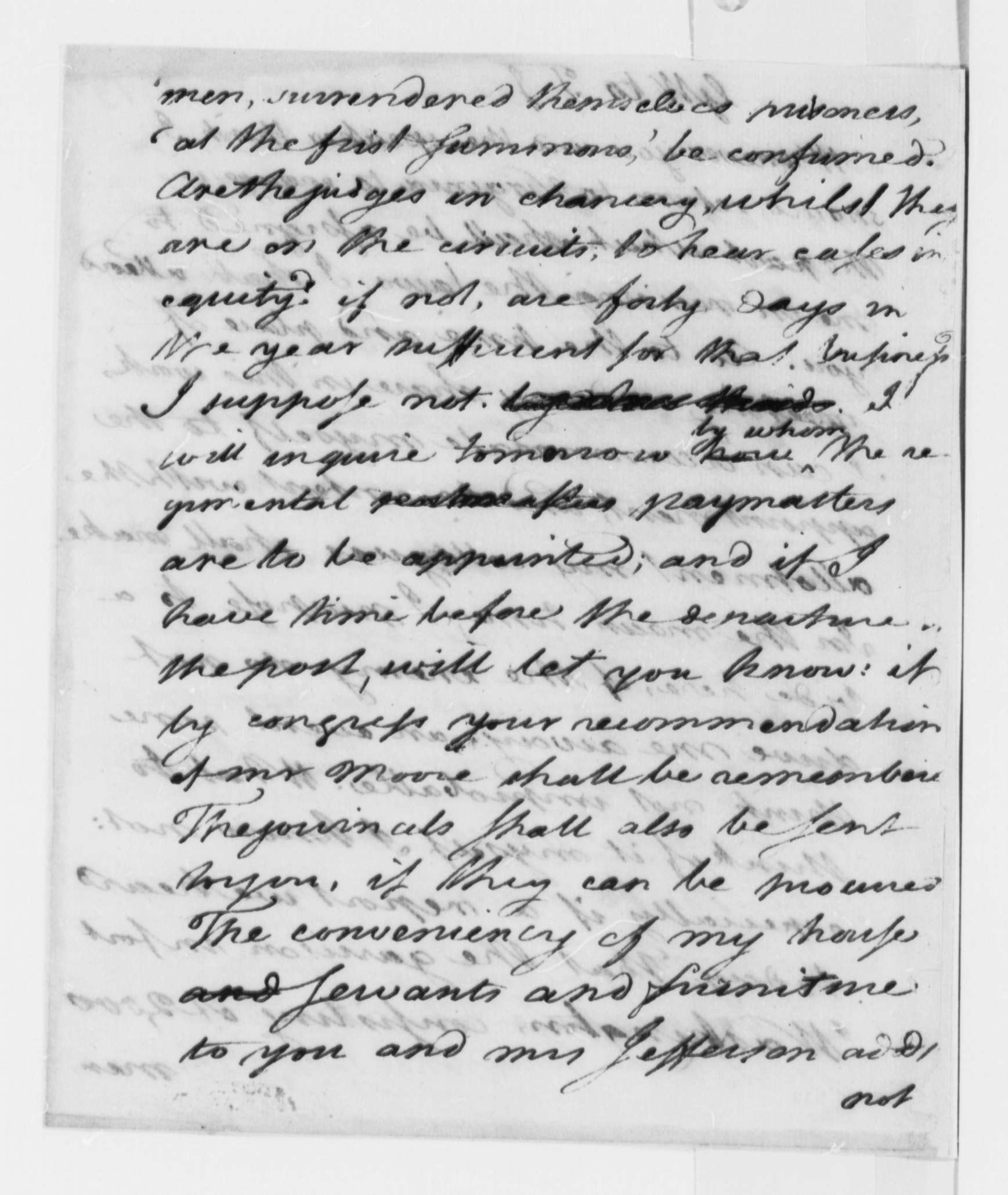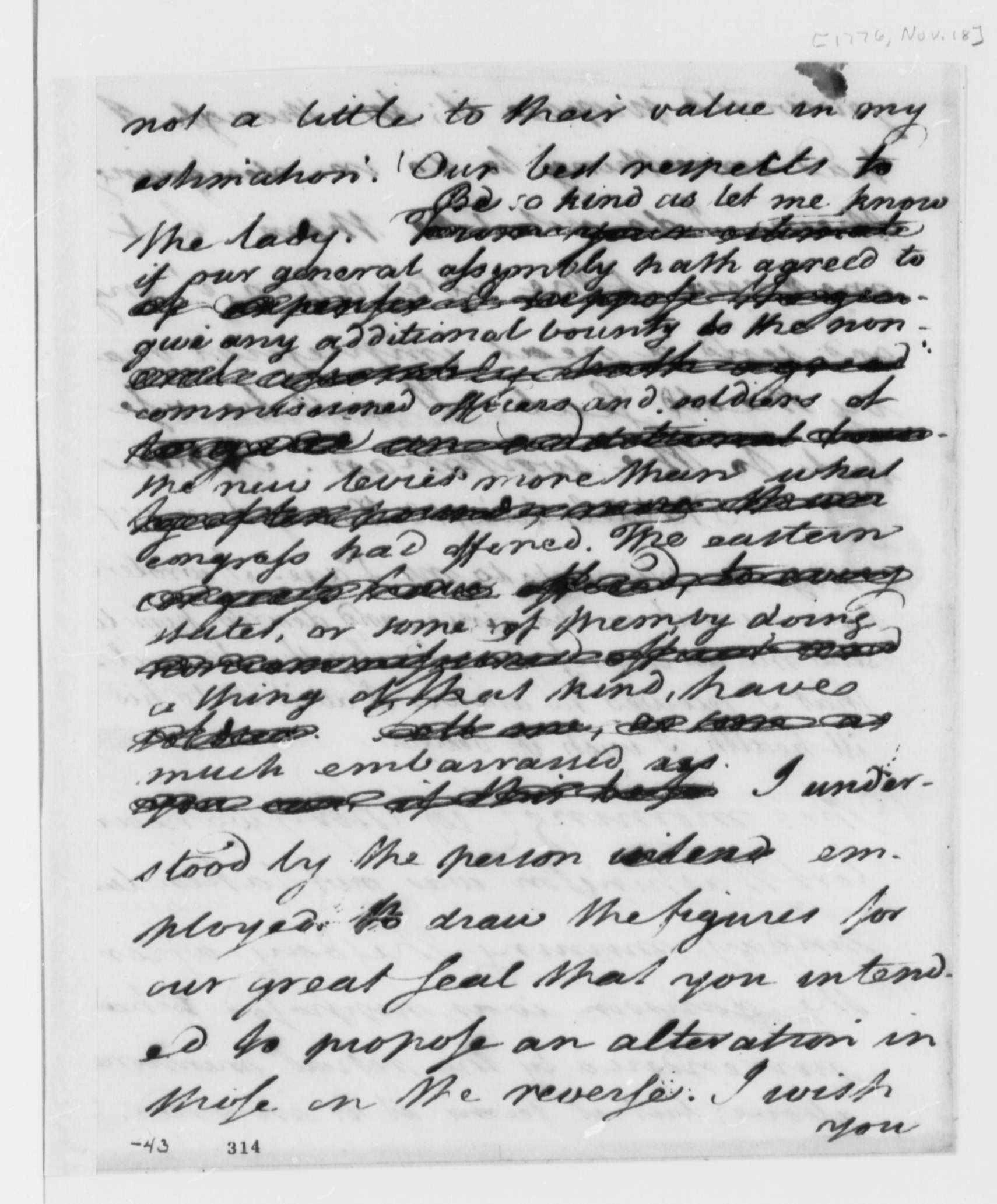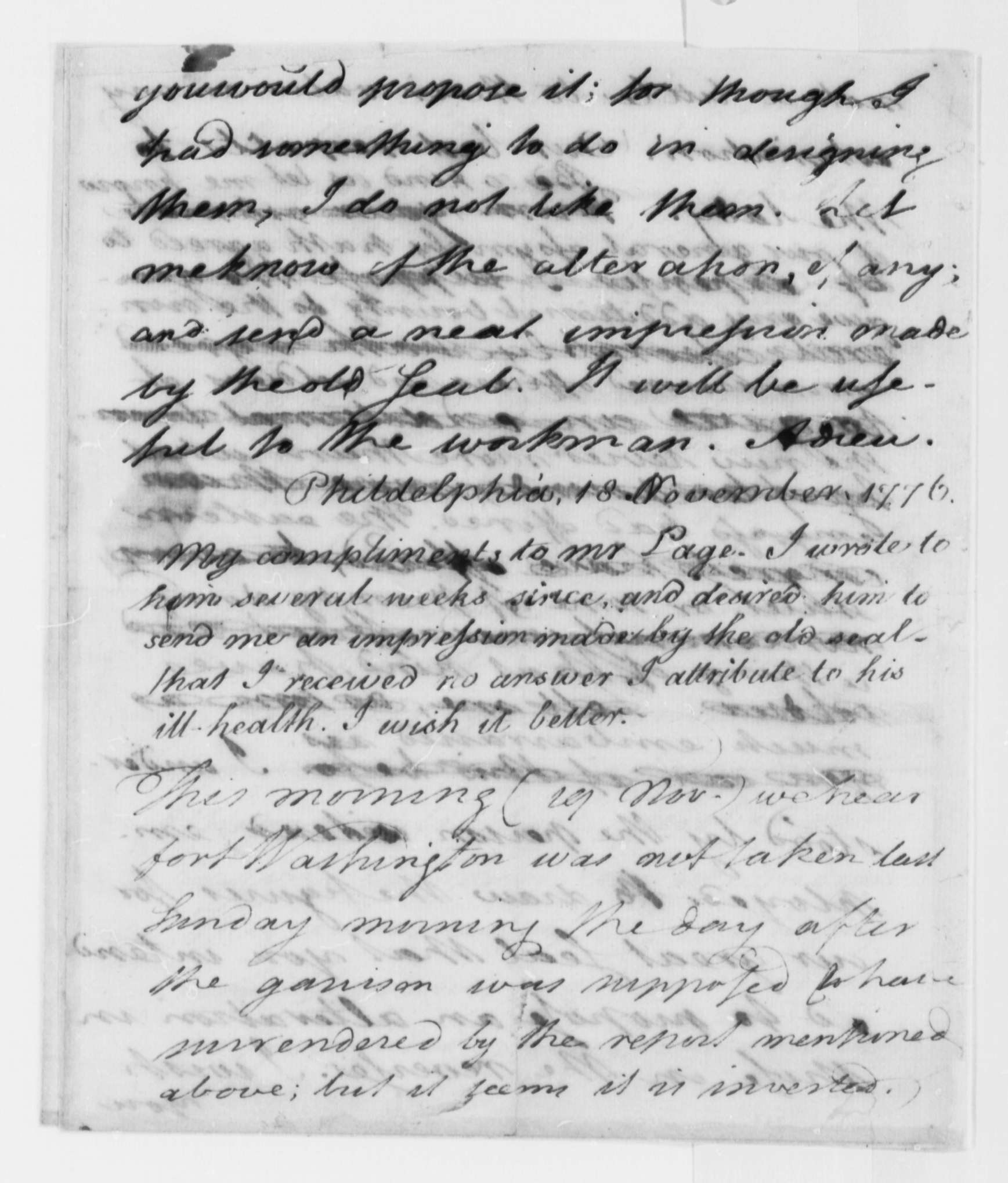Wythe to Thomas Jefferson, 18 November 1776
George Wythe told Thomas Jefferson that he would return to help write laws for Virginia when Jefferson and the speaker thought it would be best for him to do so. Wythe mentioned the Battle of Fort Washington, a British victory where 2,000 Americans surrendered allowing Britain to take over the garrison. Wythe asked a question about being a chancery judge and part of what it entailed. Wythe closed the letter by telling Jefferson to propose the Virginia seal to Congress. He and Jefferson were on a committee that designed the seal of Virginia.

"Wythe to Thomas Jefferson, 18 November 1776, pg 1." Image from the Library of Congress, The Thomas Jefferson Papers.

"Wythe to Thomas Jefferson, 18 November 1776, pg 2." Image from the Library of Congress, The Thomas Jefferson Papers.

"Wythe to Thomas Jefferson, 18 November 1776, pg 3." Image from the Library of Congress, The Thomas Jefferson Papers.

"Wythe to Thomas Jefferson, 18 November 1776, pg 4." Image from the Library of Congress, The Thomas Jefferson Papers.
Letter text
Page 1
Whenever you and the speaker think I should return to Virginia to engage in the part which shall be assigned to me in revising the laws, I shall attend you. As to the time and place of meeting and my share in this work, I can accommodate myself to the appointment, and be content with the allotment my colle^agues shall make. In the mean time, I propose to abide here, if the enemy do not drive me away, an event some think not improbable. What to think of it myself I know not: especially if a report we heard today, that the garrison in fort Washington, consisting of 2,000 men
Page 2
men, surrendered themselves prisoners, ‘at the first Summons,’ be confirmed. Are the judges in chancery, whilst they are on the circuits, to hear cases in equity? if not, are forty days in the year sufficient for that business? I suppose not. I will inquire tomorrow
howby whom the regimental paymasters are to be appointed; and if I have time before the departure of the post, will let you know: if by congress your recommendation of Mr. Moore shall be remembered. The journals shall also be sent to you, if they can be procured. The conveniency of my houseandservants and furniture to you and Mrs. Jefferson adds not
Page 3
not a little to their value in my estimation. Our best respects to the lady. Be so kind as let me know if our general assembly hath agreed to give any additional bounty to the noncommissioned officers and soldiers of the new levies more than what congress had offered. The eastern states, or some of them, by doing a thing of that kind, have much embarrassed us. I understood by the person employed to draw the figures for our great seal that you intended to propose an alteration in those on the reverse. I wish you
Page 4
you would propose it; for though I had something to do in designing them, I do not like them. Let me know of the alteration, if any; and send a neat impression made by the old seal. It will be useful to the workman. Adieu.
Philadelphia, 18 November, 1776
My compliments to Mr. Page. I wrote to him several weeks since, and desired him to send me an impression made by the old seal – that I received no answer I attribute to his ill health. I wish it better.
This morning (19 Nov.) we hear fort Washington was not taken last Sunday morning the day after the garrison was supposed to have surrendered by the report mentioned above; but it seems it is invented.